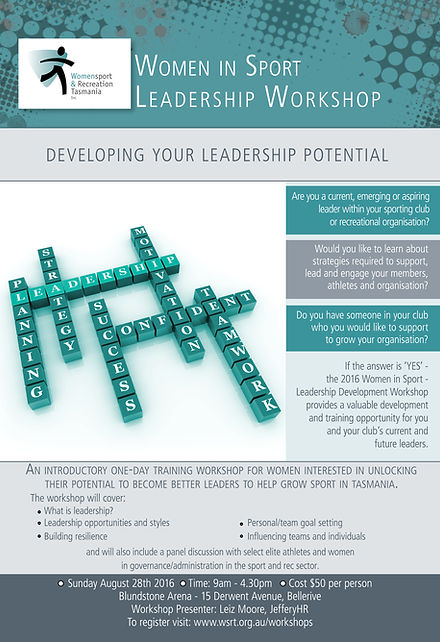2025 International Women’s Day School Girls’ Brunch

Womensport and Recreation Tasmania (WSRT) invited female school students aged 11 to 18 years and accompanying teachers to a free International Women’s Day School Girls’ Brunch in the Devonport region on Tuesday 11 March.
Presented in partnership with the Devonport City Council, this exciting event brought together young women to hear from an inspiring panel of guest speakers from the sporting sector, who shared their experiences, knowledge, and motivation.
Research shows that events of this nature, and the opportunity to hear from inspiring and relatable speakers, has a positive impact on teenage girls, boosting their confidence and empowering them to reach their full potential. By hearing first-hand from women who have excelled in their fields, our attendees gained valuable insights and were inspired to pursue their own dreams.
The brunch was held at the Paranaple Centre celebrating International Women’s Day 2025, and the joy and benefits of sport and recreation.
Sponsors and Event Partners


Past Events & collaborations
The Change Room
Bond Store Basement TASMANIAN MUSEUM AND ART GALLERY
The exhibition celebrated the contribution and achievements of Tasmanian sporting women and girls, and brought to light the lesser known stories of sporting excellence and the people behind the games.
The exhibition recognized the contribution of female athletes and coaches, spectators and sporting commentators to the sports they love. It also acknowledged those behind the scenes who make the games happen: administrators, managers, board members and health professionals.
This TMAG exhibition coincided with the International Cricket Council (ICC) Women’s T20 World Cup 2020.
Girls in Action Sports Project (GASP)
June 2021
The GASP was designed to better understand the enablers and barriers for girls in three male-dominated action sports – mountain biking, skateboarding and surfing. It builds on from a 2018-19 project, an interview study with Tasmanian girls engaged in any of the three aforementioned action sports. Girls are less physically active than boys (a pattern that continues across the life-course) so finding ways to engage, re-engage and retain girls’ engagement in physical activity is important for individual and societal level benefit.
The GASP captured the perspectives of young people who used to, wanted to or were participating in either mountain biking, skateboarding or surfing; parents/carers of young action sport participants or enthusiasts; and adults who had administrative, coaching or officiating/event coordinating roles in any of these three sports.




GASP was designed to better understand the enablers and barriers to girls engaging in male dominated action sports (mountain biking, skateboarding and surfing) with a view to providing more opportunities for girls to be physically active. Capturing perspectives of young people, parents and adult stakeholders (e.g. board/committee members, CEOs, coaches, officials), along with a policy review and collation of membership data, GASP has provided novel and rich information to help more girls get involved in these and possibly other sports.
Past Events presented by WSRT




Womensport & Recreation Tas hosted the 2015 School Girls' Breakfast on the 31st July at the Blundstone Arena Function Centre, Bellerive.
Girls aged 12-16 years were invited to attend along with a supportive parent, coach, mentor or friend for a shared learning experience.
The School Girls' Breakfast was an exciting opportunity to showcase career pathways in the sport and recreation sector to support future leaders who may one day influence, manage, coach and mentor others.
Tasmanian School Girls' Breakfast 2015

Women in Sport
Leadership Conference
&
Tasmanian School Girls' Breakfast
Hobart,
21st November 2014
Womensport & Recreation Tasmania Inc, is a not for profit organisation advocating, supporting and delivering physical activity and recreational programs and opportunities for Tasmanians with a focus on encouraging women and girls to enjoy the benefits of being healthy and active.
WSRT hosted the inaugural 2014 Leadership Conference - Changing the Game, in Hobart on 21st November.
The breakfast, conference and trade show focused on current and emerging topics and practice in areas relating to the promotion of, access to and safe participation in and growth of sports, physical activity and recreational opportunities for Tasmanian girls and women.
Changing demographics are changing the way women watch, participate and support sport. So how do clubs respond to this and marketing to female sports fans to grow their membership?
It is important to find practical solutions to respond to these challenges, and these are just some of the issues that we will be exploring over the course of the School Girl's Breakfast and the Women in Sport Leadership Conference.
Community obesity and chronic illness levels are rising. We see a significant drop out of girls from competitive sports around the age of 14 years of age. Women's events are not profiled in the media to the same extent as men's, and corporate sponsorship of women's sport lags well behind despite the business case for commercial investment being strong.
Extensive research shows that a diverse board makes for better decision making and more effective organisations; yet Boards find it difficult to attract female directors.








